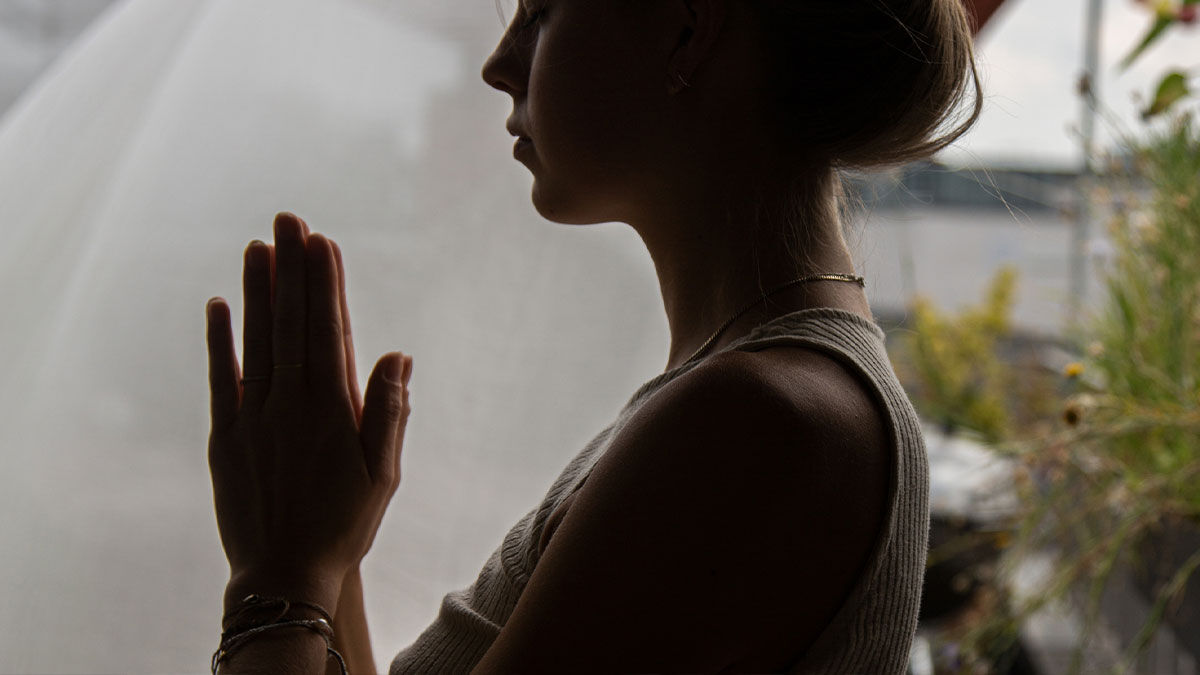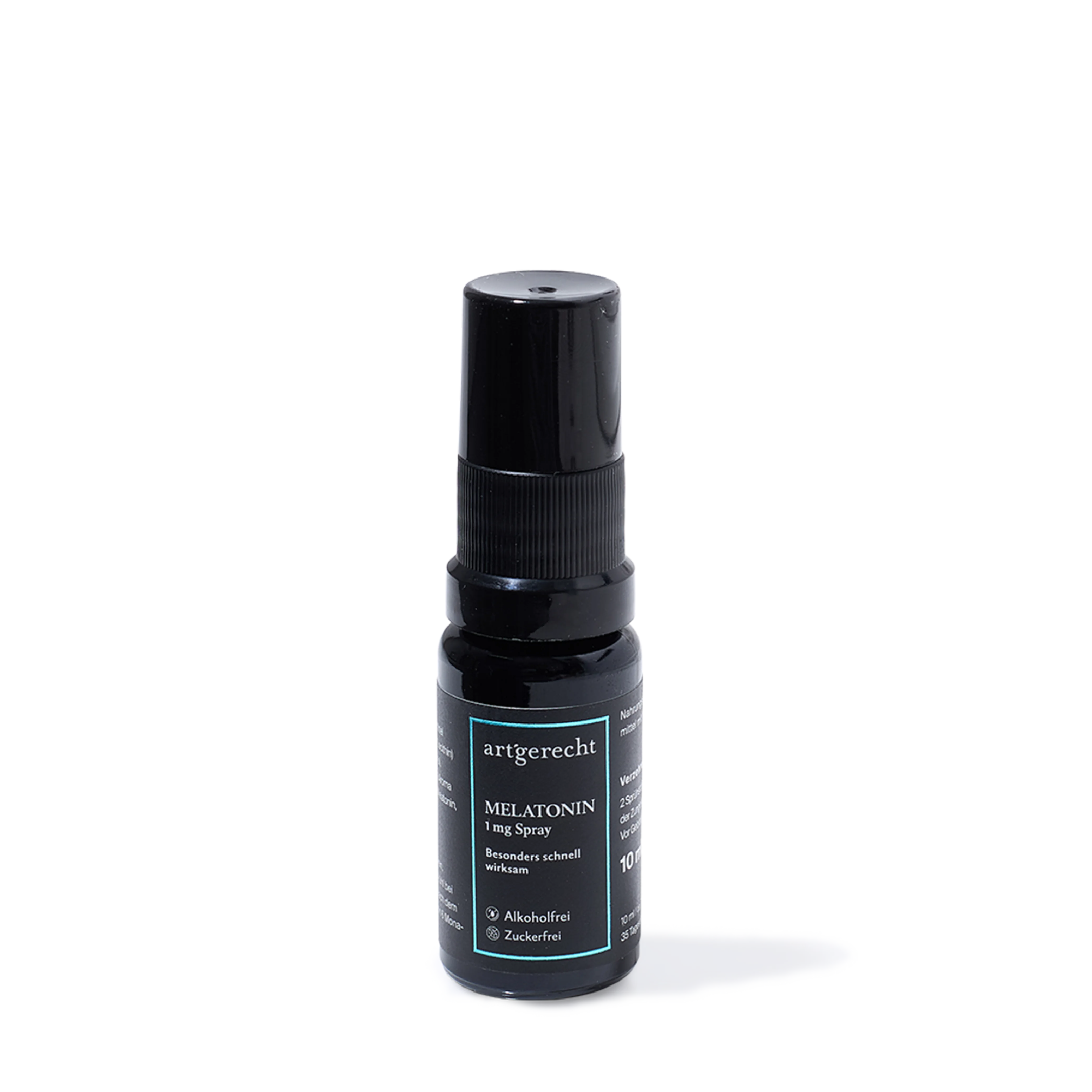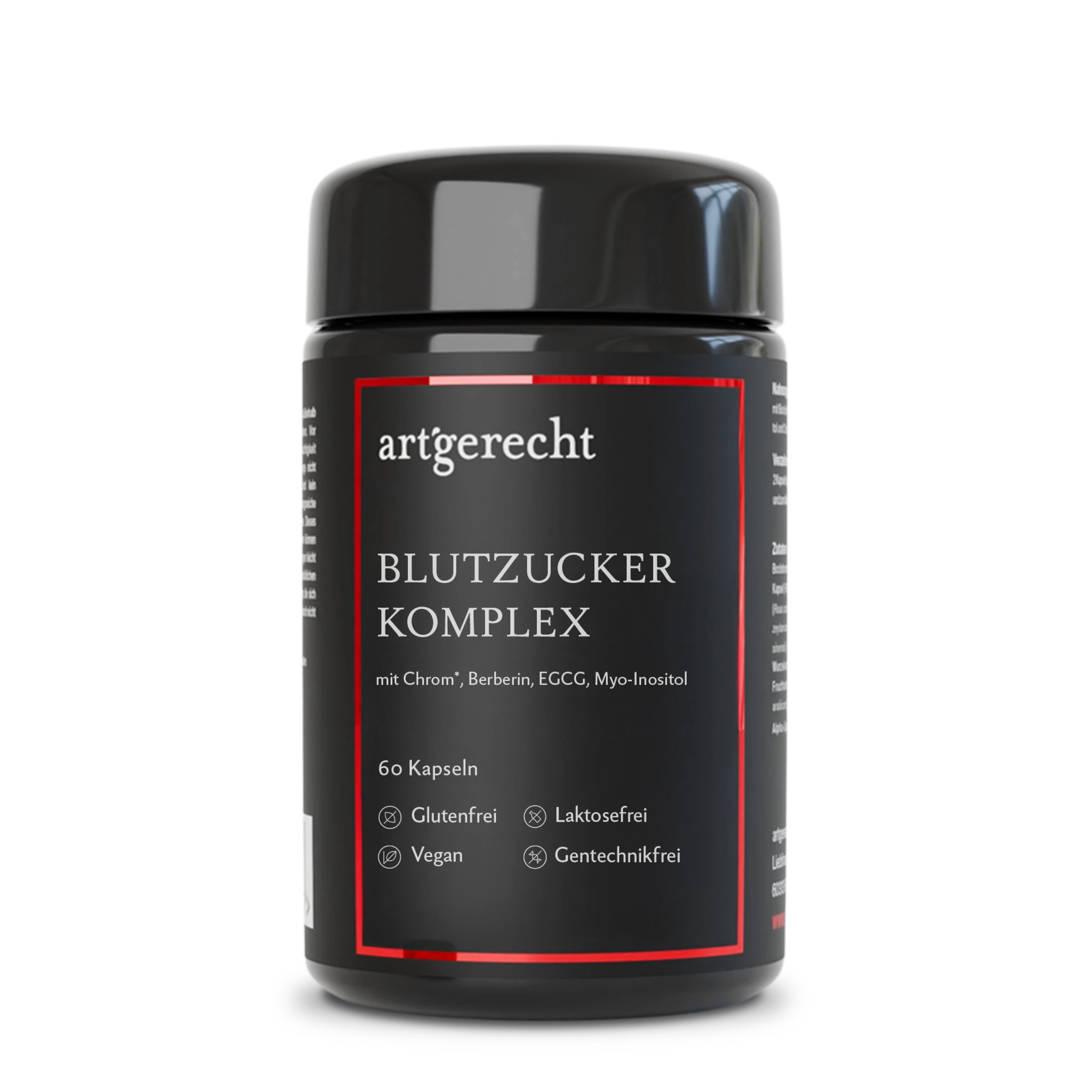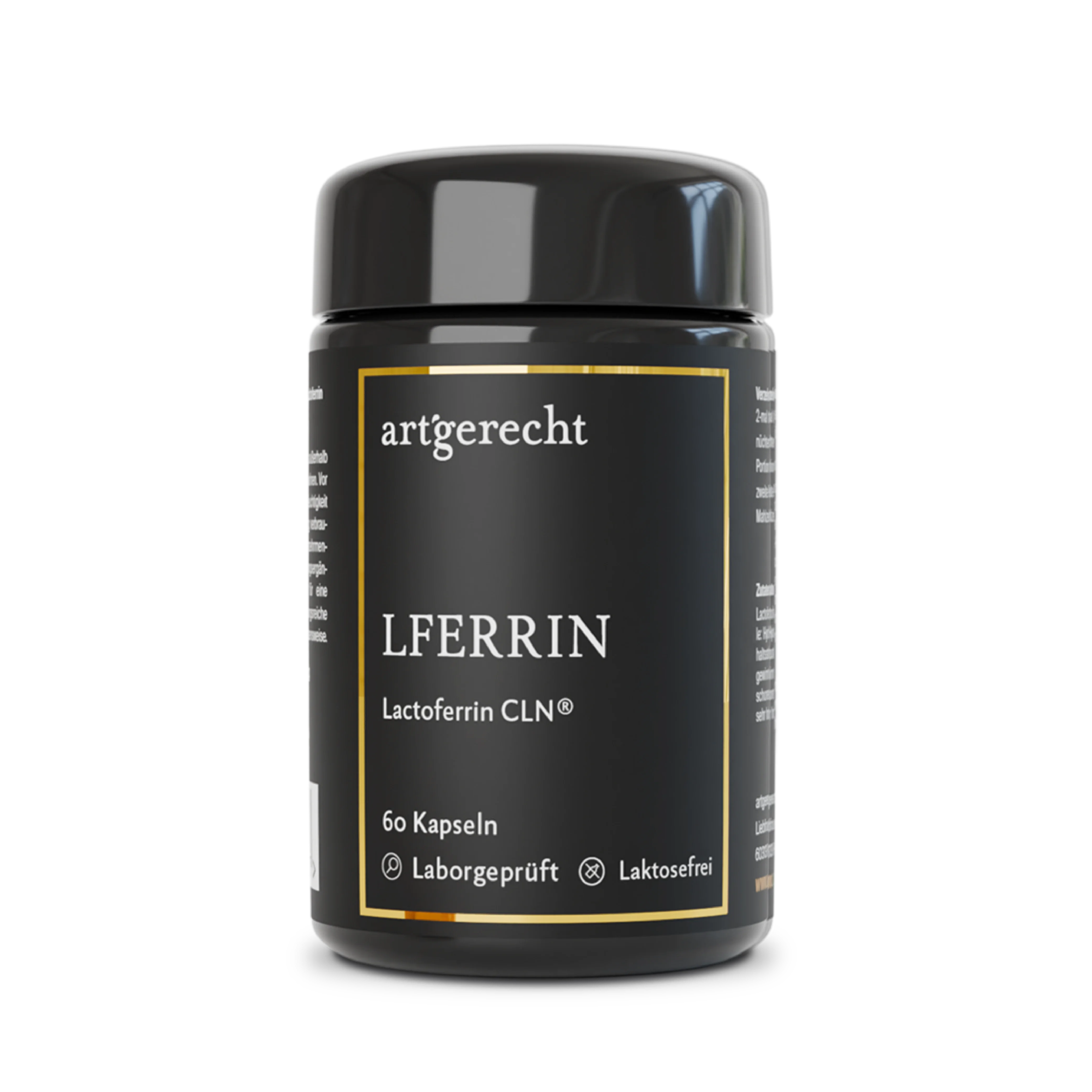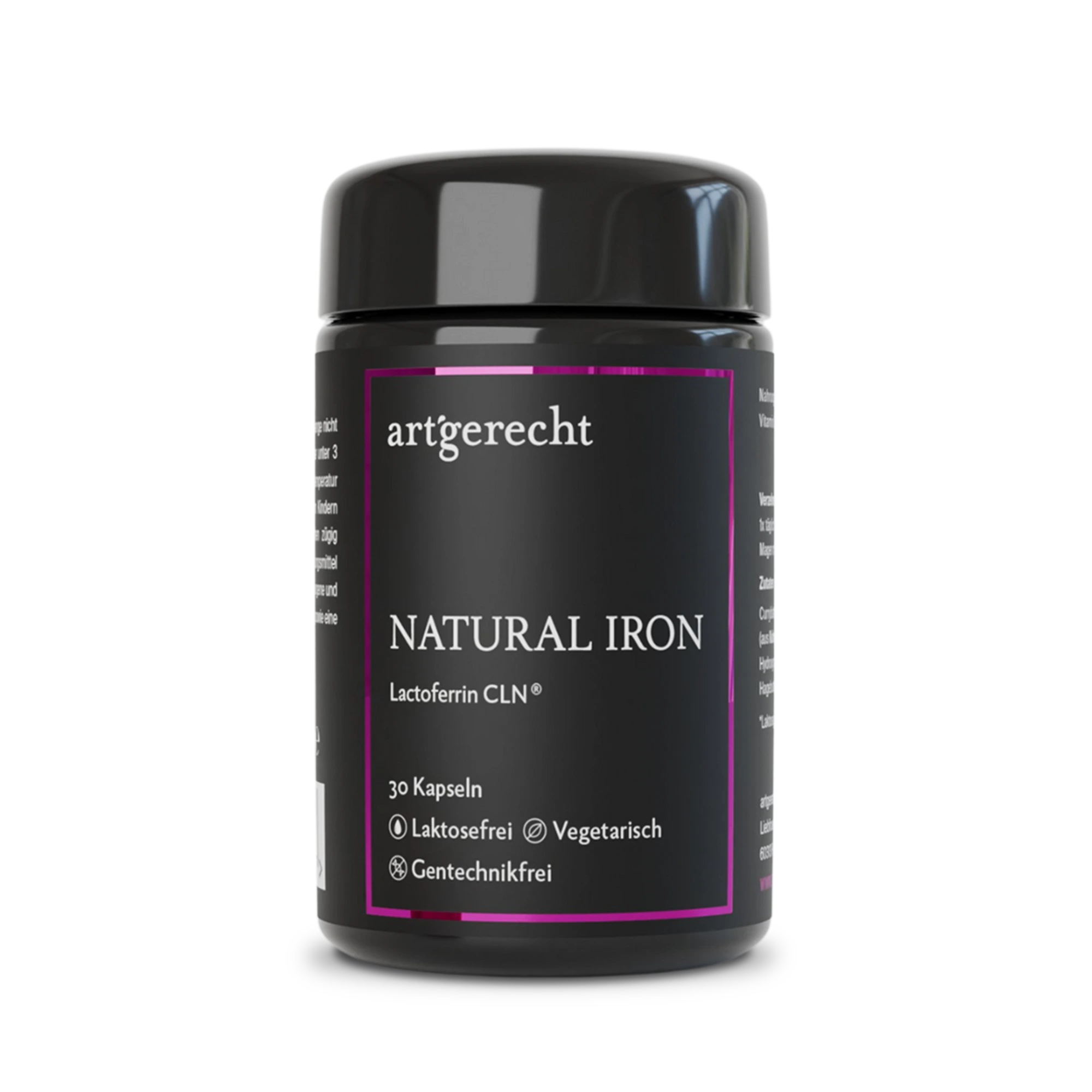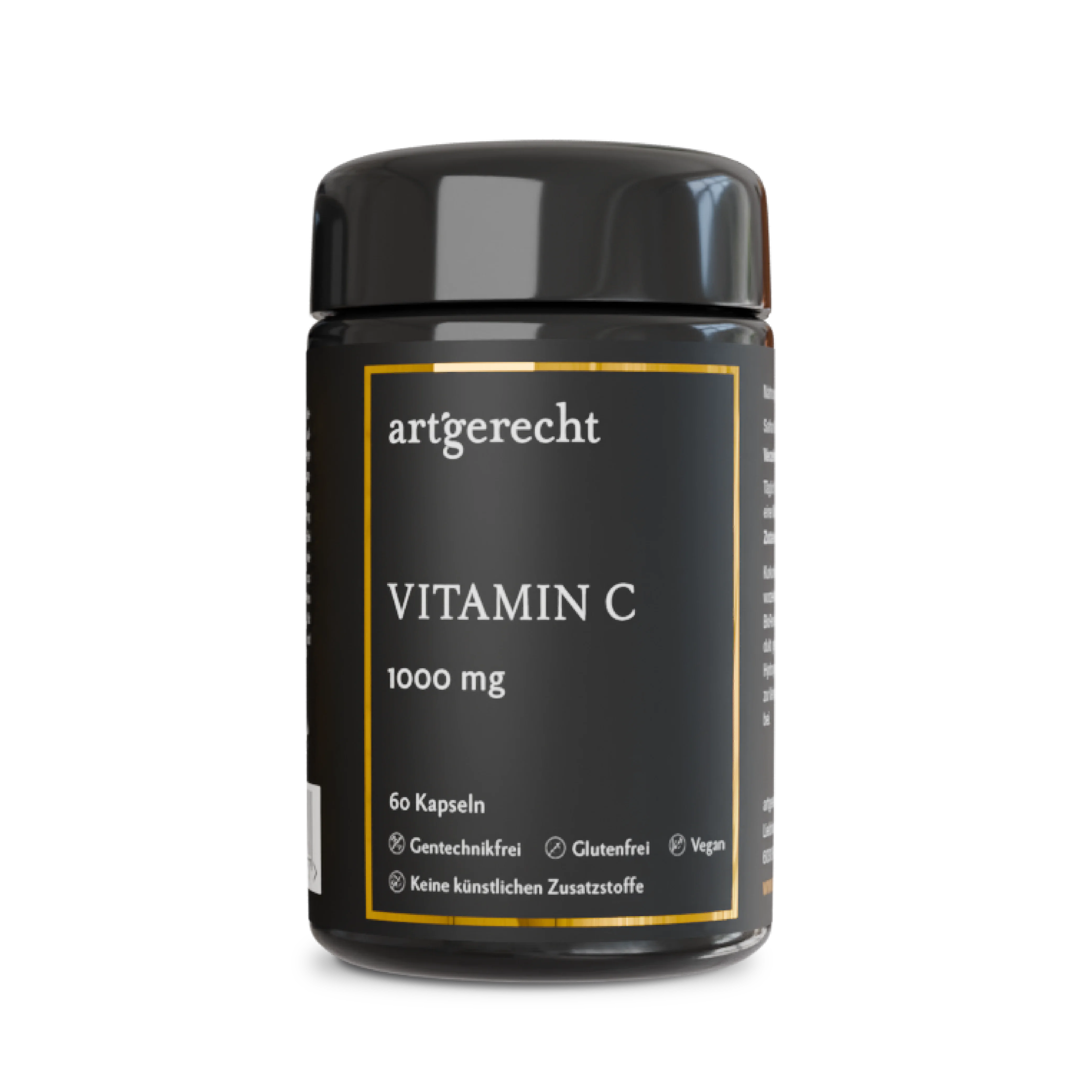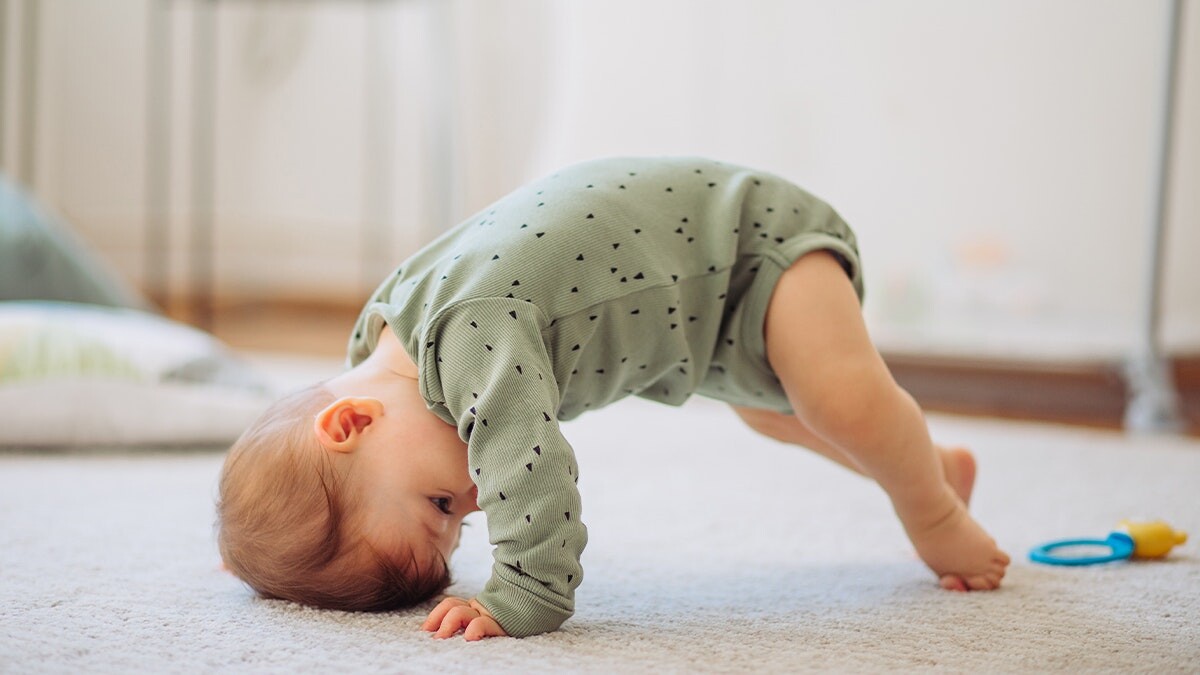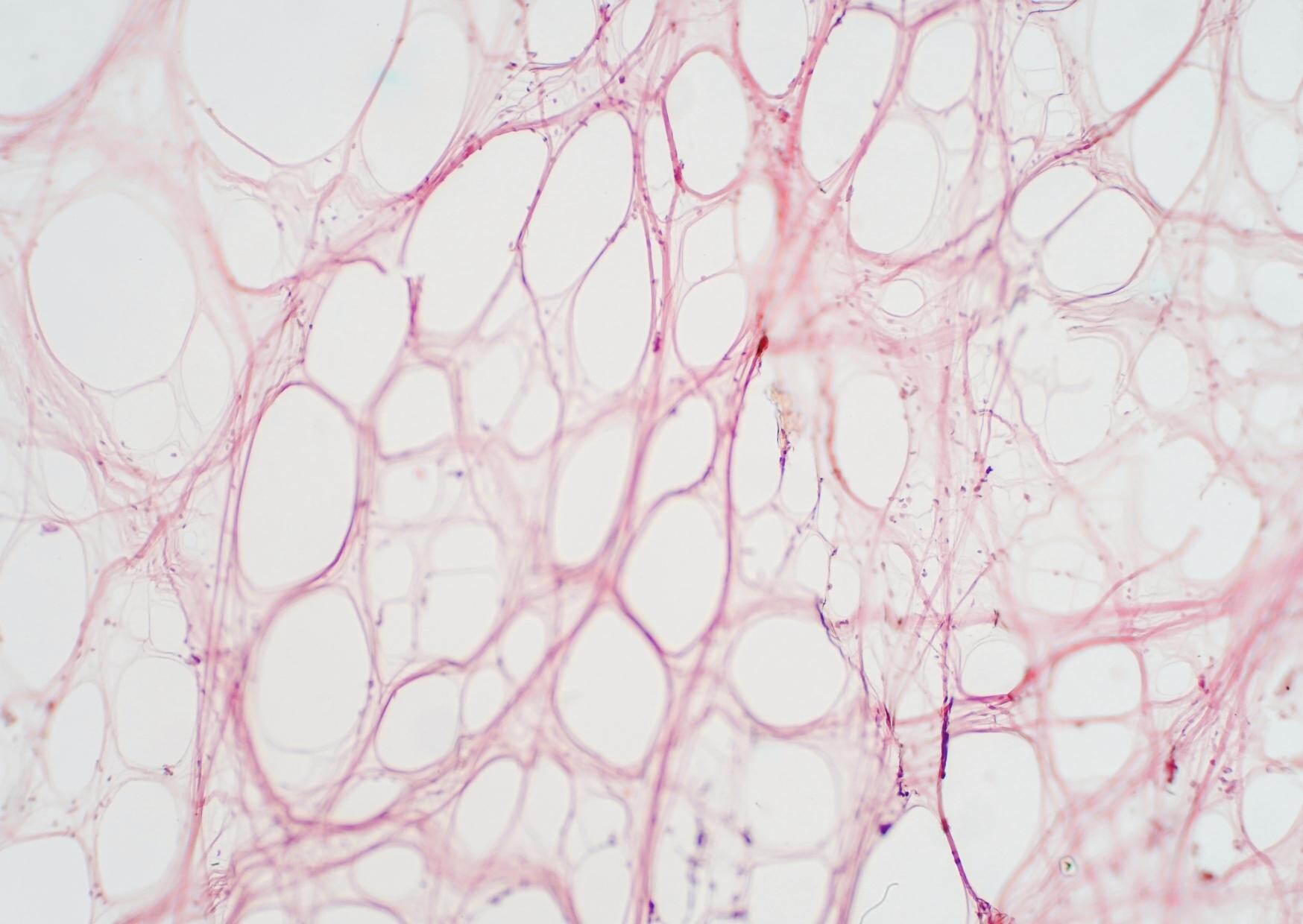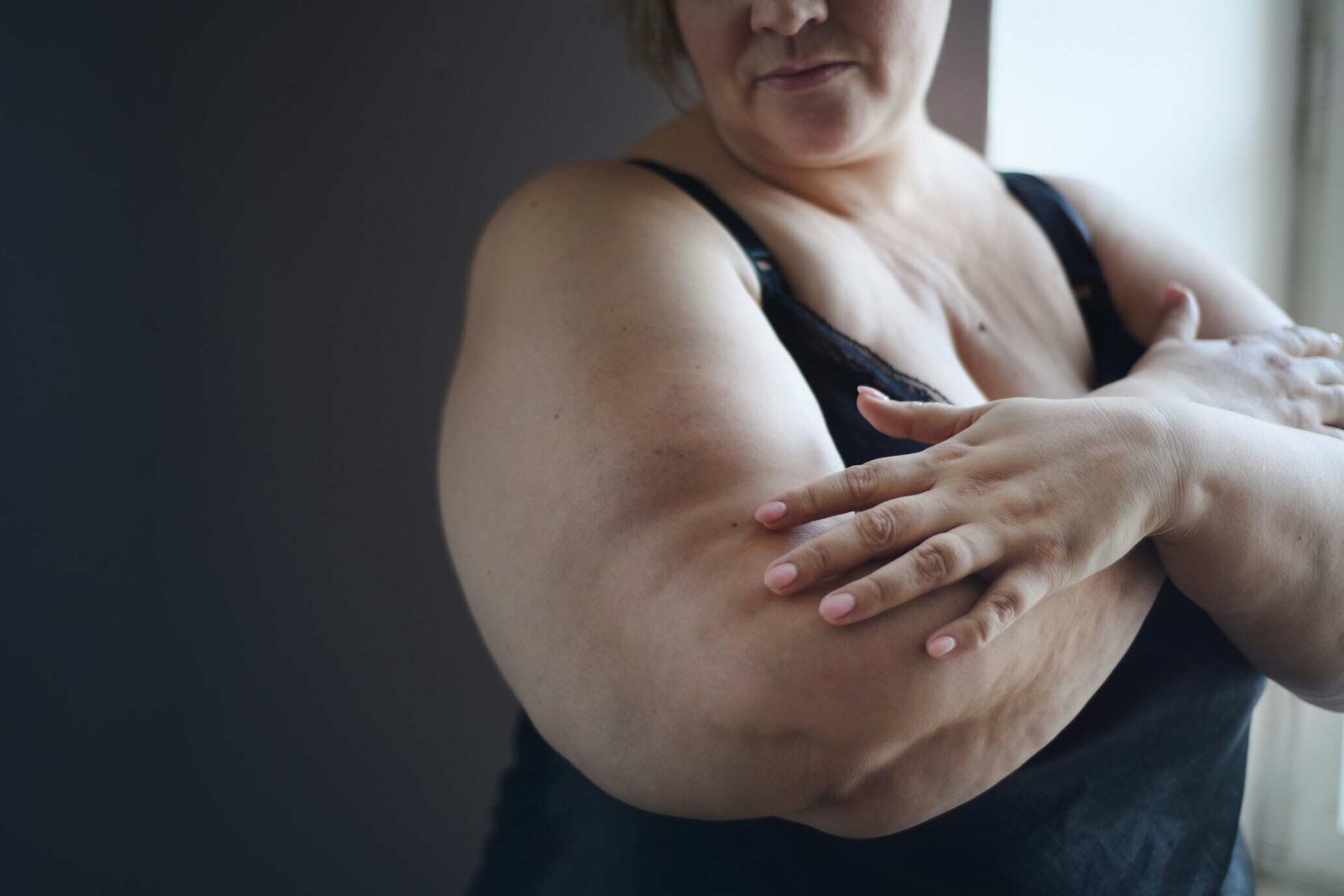- Why restful sleep is healthy and important
- Cortisol and melatonin
- Sleeping problems – why too little sleep harms our health
- When should I go to the doctor?
- Mögliche Ursachen für Einschlafprobleme
- Art-appropriate tips for problems falling asleep and restless sleep
- Die schönste Nebensache der Welt…
- These foods can promote good sleep
- The best tips to help you fall asleep in a nutshell:
- Literature:
We often come home in the evening stressed out by work, noise and the hectic pace of life. After a quick nap on the couch, we want to go to bed far too late. And suddenly we can no longer fall asleep. The next morning we get the receipt: we start the day tired and without energy. An endless loop? Or can we learn to consciously „reprogram ourselves“?
Why restful sleep is healthy and important
Unlike many animals, we humans are not nocturnal. This is anchored in the so-called „clock genes“ in our DNA. Like an internal clock, these genes give us our biorhythm – i.e. the sleep-wake rhythm –.
Cortisol and melatonin
When we are active during the day, this always means that we are breaking down our bodies, because we are physically and mentally straining ourselves with strenuous tasks. This is also reflected in our physiology, as more catabolic hormones circulate throughout the day than anabolic hormones.
One of the catabolic hormones is cortisol. It is not only an important hormone in the stress response, but also provides us with sufficient energy thanks to its energy-providing effect.
| Organ | Effect on the organ | Background |
| Brain [1] | Increased availability of glucose [4] | Stress:1. Make the right decision (brain)2. Movement and readiness to react (heart & muscles) |
| Heart [2] | Increased availability of glucose | |
| Musculature [3] | Increased availability of glucose / protein degradation | |
| Fatty tissue[4] | Lipolysis/fat breakdown | Energy supply |
| Immune system | anti-inflammatory effect/ immunosuppression | „energy saving mode“ |
| Digestive system | Reduced energy intake [6] | „Energy saving mode“ |
| Liver [7] | Gluconeogenesis | Energy production |
Table 1: Cortsiol and its effect on organs and energy metabolism
Cortisol also influences the clock genes and is also known as the biorhythm hormone due to its cyclical energy-providing effect. The presence of the precursor CRH (corticotropin-releasing hormone) also inhibits the production of the hormone melatonin, which helps us to fall asleep [8] – which is why we don't get tired in stressful situations and are normally not tired during the day but active (catabolic).
Melatonin, which is produced from our happiness hormone serotonin, has a sleep-promoting effect and is primarily responsible for the deep sleep phases. [9] During deep sleep, the production of growth hormone (human growth hormone (HGH)) increases, which is responsible for regeneration (building up anabol) [10]. During sleep, our brain, which has an extremely high metabolic rate during the day, is also detoxified from metabolic waste products. Melatonin also acts as an antioxidant and influences our immune system. It is now understood to be a pacemaker for our biorhythm, which can activate the clock genes not only for the brain, but for all body tissues [11].
Both hormones therefore set the pace for the biorhythm, have a strong regulatory influence on the body and create an optimal ratio between build-up and breakdown, or activity and regeneration [12].
Sleeping problems – why too little sleep harms our health
Sleep disturbances are a sign that the regulation of activity and recovery is disturbed. Possible consequences are, for example:
When should I go to the doctor?
Long-term activation of the stress axis often leads to regulatory disturbances in the hormone and neurotransmitter balance. Not only sleep disturbances are a consequence, but also a variety of chronic illnesses and associated symptoms ranging from fatigue and lack of energy to digestive problems [21].
If you have been suffering from sleep disorders such as insomnia, irregular sleep patterns, frequent problems falling asleep or obstructive sleep apnea syndrome for a long time, it is important to talk to a doctor about it. This is because insufficient sleep has a significant impact on your performance in the long term. Your doctor should make a diagnosis if necessary and start treating the symptoms together with you.
Mögliche Ursachen für Einschlafprobleme
Our biorhythm is regulated and controlled by so-called „zeitgebers“. If you have problems falling asleep, the „zeitgeber“ is an üoveractive stress axis (regardless of whether it is acute or chronic stress) [22]. But also light [23], exercise [24], food [25] and temperature [26] influence our sleep-wake rhythm.
In evolutionary terms, there were relatively fixed time windows for activity and regeneration. During the day we were active, sometimes stressed, in search of food and exposed to the prevailing climatic conditions. When darkness fell, our activities were reduced and we rested accordingly in order to get a good night's sleep. In our modern world, for example, air conditioning, electric light and lack of exercise influence our bodies and send the wrong time signals that throw our biorhythms out of balance.
Art-appropriate tips for problems falling asleep and restless sleep
The causes of sleep disorders are many and varied - as are the tips for better sleep. Developing your own sleep hygiene therefore seems to make the most sense from our point of view. For this to succeed, it is important to consider all „timers“:
Light
Daylight, which has a high proportion of blue light, was only available for a maximum of 12 hours a day for the longest time of our evolution. Accordingly, our „internal clock“ is programmed to a 12/12 – day-night rhythm. In the evening hours, after 7 p.m., and especially before going to sleep, we should therefore avoid blue light. TV, notebook and cell phone screens are particularly problematic. Many devices now have software settings that reduce the amount of blue light on the screen („night mode“). You can also wear blue light filter glasses to intensify the filter effect. And in bed, it is best to completely avoid unnecessary light sources.
Daylight has a high blue light content and is a clock for the human biorhythm. We should therefore avoid blue light in the evening. Blue light filters in the form of glasses or as a software setting in devices can help here.
StressStressors are many and varied and have changed dramatically in recent years. We often find it difficult to recognize them because they have become part of our culture and our normal behaviour. The new stressors often appear in bundles and activate the immune system in the long term, which can have a negative impact on our body and our health.
| New stress factors | Old stress factors |
| High meal frequency, carbohydrate-rich meals, too much linoleic acid (omega 6), junk food | Natural hazards (fight/flight) |
| Mobile phone, TV, newspapers, internet | Hunger |
| Driving, lack of exercise | Thirst |
| Continuous lärm | Kälte |
| Mortgage, shares, finances, job | Heat |
More and more often, psychological stress is also in the foreground and it is precisely this that affects our biorhythm and can lead to problems falling asleep. The following activities, practiced regularly, can help to reduce stress. Often just a few minutes a day are enough.
Movement
- For optimal sleep, you should exercise 4-8 hours before going to bed. The intensity does not matter, even walking is enough to improve the quality of sleep [33].
- The best time slots for exercise are in the morning after getting up and in the afternoon between 4 and 5 pm [34].
- It is important not to exercise at a high intensity just before going to sleep [35].
Temperature
For our ancestors, mild cold was a sign that night was falling. Warmth or heat, on the other hand, was always associated with the day. Accordingly, the temperature also influences our biorhythm:
- Avoid sleeping in temperatures below 13°C or above 23°C [36]
- Soaking, cold water, cold drinks or even a cold shower not only stimulate your morning sleep;not only promote vitality in the morning, but can also help you fall asleep if done in the early evening [37]
Nutrition
- don't eat too late. Late meals are digested poorly and disrupt not only our bowel function but also our sleep.
- don't eat too much raw food for dinner. Raw food is more difficult to digest and should be avoided in larger quantities, especially by people who have problems with their digestion.
- Fasting [38]. Intermittent fasting (16-8 method) has a positive effect on our stress levels and also reduces food-related inflammatory reactions in the body.
- Sleep-promoting foods. Banana, kiwi, pineapple and walnuts have a relatively high proportion of 5-hydroxytryptamine, which is a precursor of our happiness hormone serotonin and therefore also of the sleep hormone melatonin [39].
Die schönste Nebensache der Welt…
Sex is also beneficial for a good night's sleep. An orgasm lowers cortisol levels and promotes the release of oxytocin, which in turn helps us to fall asleep better [40]. In women, increased estrogen levels after orgasm lead to deeper sleep, whereas in men, increased prolactin levels make them sleepy.
These foods can promote good sleep
Herbs that can be used as an evening tea, for example:
- Valerian
- Lavender
- Melissa
- Passion flower
- Hop flowers
Helpful foods:
- Cashew
- Cocoa
- Raspberries
- Sour cherries
The best tips to help you fall asleep in a nutshell:
- Do not eat too late (until 8:00 pm)
- Avoid screens or use blue light filters 2 hours before going to sleep
- Do not go to bed too early or try to stay in a consistent rhythm
- From late afternoon (15:00) no more caffeine
- Do not take extended naps during the day, maximum 10-20 minutes power napping
- Do not doze off in front of the TV, but rather go straight to bed
- No intensive sport in the late evening (after 20:00)
- Use natural sleep aids such as valerian or hops products
- Consciously wind down in bed – meditation, PMR etc.
- Establish bedtime rituals such as reading, listening to audio books, writing a diary
Literature:
- Macfarlane, Forbes, & Walker, 2008
- Macfarlane et al, 2008
- Macfarlane et al, 2008
- Thau & Sharma, 2019
- Thau & Sharma, 2019
- Macfarlane et al, 2008
- Thau & Sharma, 2019
- Kellner et al, 1997
- Escames et al, 2010
- Elkhenany, AlOkda, El-Badawy, & El-Badri, 2018
- Amaral & Cipolla-Neto, 2018; Elkhenany et al, 2018
- Dierickx, Van Laake, & Geijsen, 2018
- Nölte, 2009; Kraan, 1998.
- Oyetakin-White et al, 2015
- Xie et al, 2013; Albrecht, 2012
- Diekelmann, 2014
- Gamaldo, Shaikh, & McArthur, 2012; Kinnucan, Rubin, & Ali, 2013
- Coughlin & Smith, 2014
- Rundle et al, 2006
- Morris, Aeschbach, & Scheer, 2012
- R H Straub, Cutolo, Buttgereit, & Pongratz, 2010; Rainer H Straub & Schradin, 2016; Rainer H. Straub, 2014
- Koch, Leinweber, Drengberg, Blaum, & Oster, 2017
- Duffy & Wright, 2005
- Hower, Harper, & Buford, 2018
- Allison & Goel, 2018
- Koch et al. a., 2017
- Park, Tsunetsugu, Kasetani, Kagawa, & Miyazaki, 2010
- Brand, Holsboer-Trachsler, Naranjo, & Schmidt, 2012
- Thirthalli et al, 2013
- Uedo et al, n.d.
Meistgesuchte Präparate
Unsere Leser schätzen neben fundiertem Wissen rund um Gesundheit & Ernährung auch Präparate in höchster Qualität. Folgend findest Du unsere derzeit meistgesuchten Produkte.

